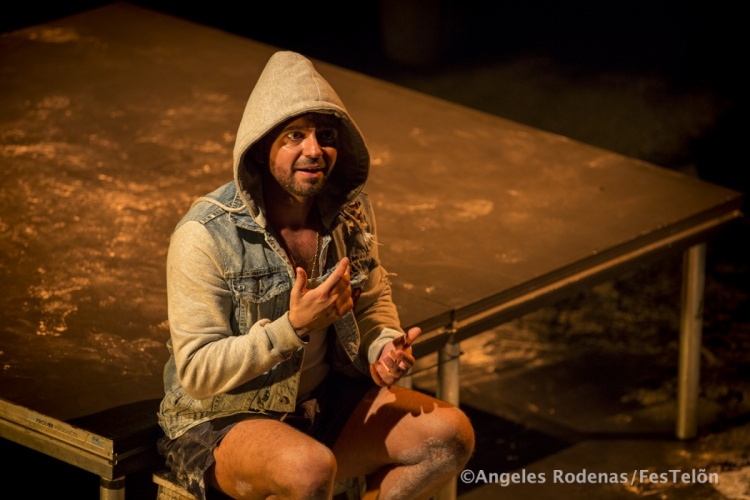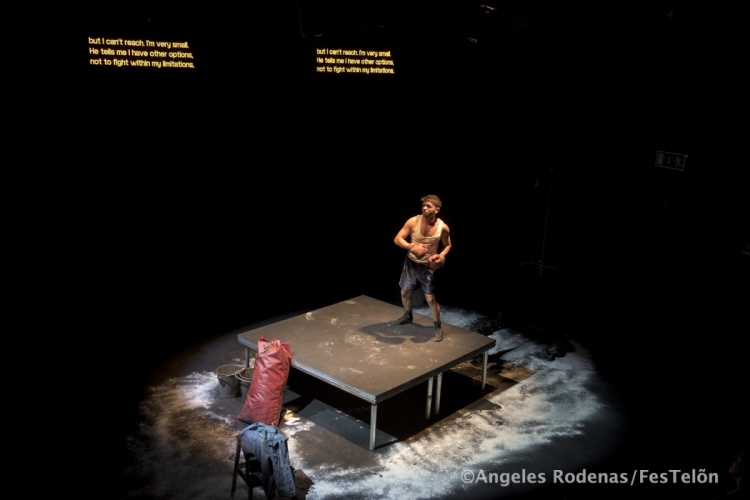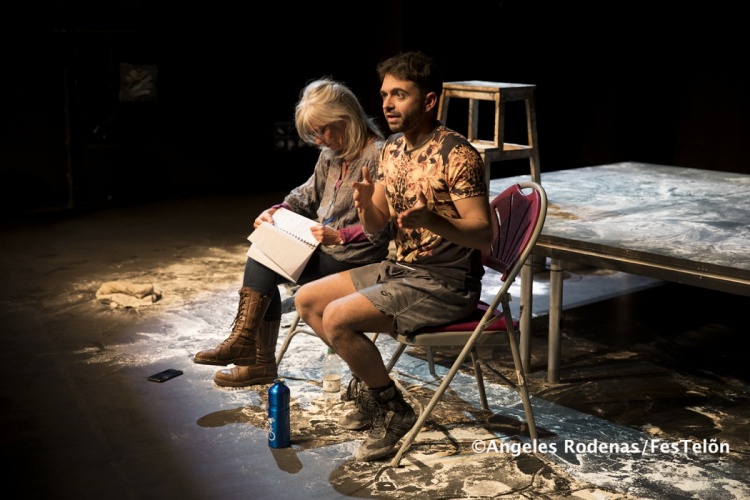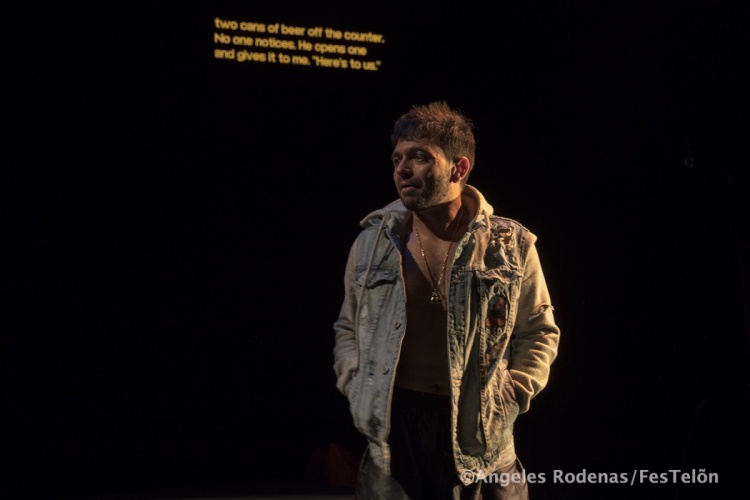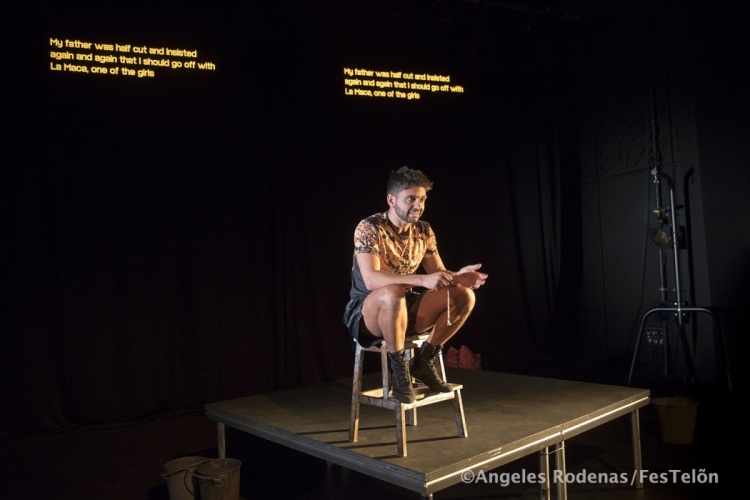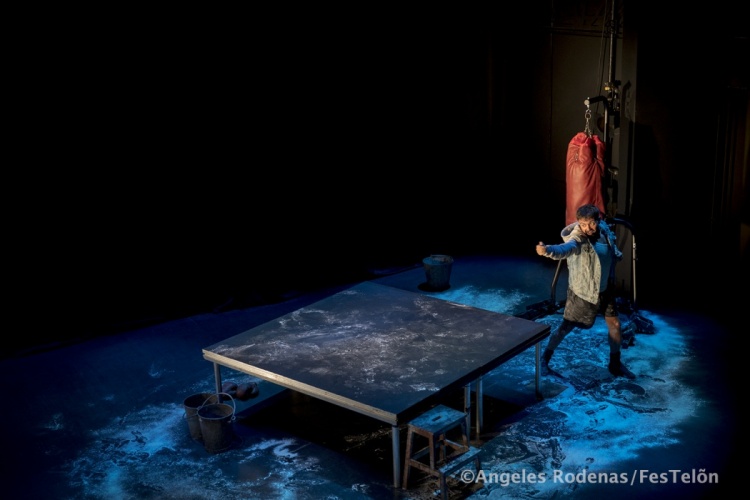Puños de harina
Our audience talk about “Puños de Harina”. What a wonderful play. !
A powerful performance that told an emotional story with a Q&A afterwards that allowed us to hear how Torres brought his ideas and research together to create this poignant play that we had the pleasure of being the first to watch it. Click on the photos below to open the gallery! (Photos by Angeles Rodenas © Festelon)
Dates and times
-
Friday 18th October at 7:30pm: Play and Q&A after play (with an English interpreter)
-
Saturday 19th October at 7:30pm: Play
-
Sunday 20th October at 7:30pm: Play and Q&A after play (with an English interpreter)
Author: Jesús Torres
Director: Jesús Torres
Cast: Jesús Torres
Producer: El Aedo Teatro
Suitable for 12yrs+
Running Time: 80 minutes
No interval
This performance contains strobe lights
Venue: John Lyon’s Theatre, City Lit , 1-10 Keeley St, London WC2B 4BA View map
Pagina web: https://www.elaedoteatro.com/obra-punos-de-harina
Facebook: elaedoteatro
Twitter: elaedoteatro
Instagram: elaedoteatro
Synopsis:
After other one-man stage plays, such as La vida es sueño: el bululú and La Odisea (Life’s A Dream: the Solo Version and The Odyssey), Jesús Torres and the El Aedo company bring a new solo performance to the stage. This new work is the result of considerable research and stagecraft which always form an integral part of their work.
Puños de harina (Powdered Fists) is a reflection on racism, homophobia, violence and masculinity. What is violence? What does being a man actually mean? What does it mean to behave “like a real man”?
Using the structure of a boxing match, the monologue presents two stories in parallel, in ten rounds. On the one hand, we will discover the true story of Rukeli, a German boxer who was a Gypsy in Nazi Germany and who defied Hitler himself. The darkest chapter in the history of Europe, as seen through the eyes of a young man whose only aspiration, like so many others, was to survive. On the other hand, we will meet Saul, a gay Gypsy in search of his identity in rural Spain in the 1980s, who is trying to survive in a traditional family environment.
This is the story of how Rukeli, Saul and other Gypsies, struggled, resisted, died or survived during the Holocaust and in Society. But it’s also the story of how some men struggle to meet the ideal concept of a what it is to be a “real man”, in an environment which rejects them because of their race or their sexual orientation.


